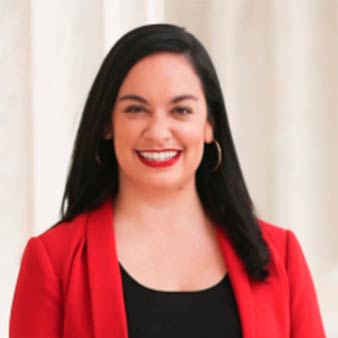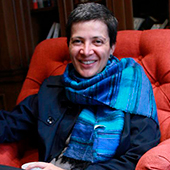Emerging Issues in Human Rights and Gender: From Theory to Practice
This course will address emerging issues on the relationship between gender and human rights at the international level. International law and human rights have been the object of analysis and reflection in gender studies for several decades. The feminist critique has pointed out how the law can reinforce social inequalities and sexual differences, but can also promote the transformation of public policies and cultural practices that advance gender equality. From different interdisciplinary theoretical and methodological perspectives, intersections between gender roles, sexuality, race, and class will be discussed in relation to contemporary human rights issues such as migration, gender violence, social protest, the environment, and armed conflicts. Among the cross-cutting questions of the thematic axes of discussion are: What have gender and sexuality studies contributed to international human rights law? How can gender-based violence be addressed from a human rights perspective? What are the global challenges to protecting the rights of women, sexual and ethnic minorities in contexts of violence and migration? What does the intersectional perspective mean for the protection of human rights?
Organize


Dirigido a
Estudiantes de pregrado y posgrado de la Facultad de Jurisprudencia y Relaciones Internacionales y en general a todo publico que quiera conocer y actualizarse en las temáticas del programa.
Objectives
To analyze the contributions of gender and sexuality studies in the theory and practice of human rights through current issues such as migration, violence, protest, and armed conflicts.
1) Improve analytical skills to think, write and legally argue human rights cases in which gender and sexuality play a relevant role in their construction. 2) Understand how feminist theories and debates have proposed a critical reading of public international law and human rights. 3) Identify the conceptual foundations that feminist theories and gender studies have developed in order to identify and analyze specific human rights problems, such as violence, migration, and armed conflicts. 4) To know and apply the methodologies employed by the various feminist approaches to the critical study of international human rights law. 5) To analyze the scope of the intersections between gender, race, and sexuality in the study of international human rights law and its impact on global public policy.
Methodology
Remote access course through presentations, workshops, and round tables. The methodology of each subject will be developed by the professor teaching the specific module. Active learning methodologies will be promoted. The course will be taught in either English or Spanish, depending on the teacher's preference.
Evaluation:
The course will be evaluated through a written essay of 2000 words single-spaced Times New Roman (not counting bibliography or footnotes) by each student in relation to a specific course topic The essays will be distributed by the teachers to be graded at the end of the course. Date for submission of the essay to Professor Alma Beltrán y Puga's mail: December 3, 2021.
Program Benefits
The course is designed to open interdisciplinary and transnational debates on the proposed topics. The teaching staff will be bilingual and made up of specialists in human rights and gender. It is expected to foster the development of the following competencies in the students:
- Understand how feminist theories and debates have proposed a critical reading of international human rights law (general basic critical competence.
- Identify the conceptual foundations that have been developed by gender and sexuality studies in order to discuss and analyze emerging human rights issues such as migration, global warming, armed conflicts, and violence against women (basic critical general competence).
- Know and apply the methodologies employed by feminist, intersectional, and gender studies to the critical study of international human rights law (general basic analytical competence).
- Analyze the scope of the various feminist approaches to the study of public international law and their impact on its institutions and global public policies (specific critical competence).
- Propose alternative solutions that integrate gender, race, and class in a critical manner in the institutions of public international law considering emerging issues in crucial areas of human rights (specific critical competence).
Speakers
Schedule
Dates: November 29 to December 3, 2021
Schedule:
- Monday, November 29, 09:00a.m. a 12:00p.m. y de 02:00p.m. a 05:00p.m.
- Tuesday, November 30, 09:00a.m. a 12:00p.m. y de 03:00p.m. a 07:00p.m.
- Wednesday, December 1, 09:00a.m. a 12:00p.m. y de 03:00p.m. a 07:00p.m.
- Thursday, December 2, 09:00a.m. a 01:00p.m. y de 03:00p.m. a 07:00p.m.
- Friday, December 3, 09:00a.m. a 01:00p.m.
Venue: Remote Classes
Intensity: 32 hours
Tipo (workshop or course): Virtual Course
Lenguage: English/Spanish
Faculty or School: Faculty of Jurisprudence
Fees: $1.177.600 COP - 305 USD (approx.)
Discounts:
UR Community: 10%
International Community: 10%
Remote Classes: 10%
Early bird discount: 10% (until Nov 14, 2021)
Organizing committee
Dra. Alma Beltrán y Puga
Dra. Rosa Celorio
Introduction to the course: gender, sexuality and human rights
Session 1
Welcome Remarks & Roundtable discussion of the main contributions of gender and sexuality studies in human rights theory and practice.
29/11/2021
*La Universidad del Rosario se reserva el derecho de cambiar o modificar el contenido y/o profesores del curso.











